The LabCom.IFP - Communication, Philosophy and Humanities Research Unit will carry out the International Conference Rethinking Humanities on December 10 and 11.
The technological transition and tension arising on the representations of the human challenge the traditional conceptions of Humanities, giving them back the task of identification of a human increasingly mutable.
More recently the Humanities were confronted with technical developments that seem to call into question, beyond humanistic knowledge, the methods, ideals and even the media,that have always defined them.
Digital technologies would tend to transform the linear experience induced by discursive thought, which tends to be monologic and linear, in an experience of multiple voices, in which each one may intervene/participate with texts and images in constant interaction.
Such an experience would dissolve a wisdom that characterizes the culture of writing and of the book, in which the humanities would have its privileged place. The very image of man and humanism associated to it, provided by the humanities, would be called into question by a mutation, so desired by some as feared by others, of the human being towards a post-human, still poorly defined, in the origin of which the association between digital and genetic technologies lies.
According to some perspectives, the classical humanities (and the narratives and forms of representation associated to them) would have been complemented, or even replaced, by the "new humanities" and by the "digital humanities" – being thus important to wonder about what is new in the humanities today and about the effects of media (and, in particular, of digital media) on them.
As it is also important to question the object of the Humanities (human): which human do we talk about today? Has this human been replaced by the post-human or even by the anti-human? If so, what could be the meaning and the implications of these new categories for the Humanities? This is the object of investigation of the conference carried out in an interdisciplinary matrix of communication sciences, practical philosophy and arts.
Guest speakers include Professors and researchers Gilbert Hottois (Univ. Libre de Bruxells, Belgium), Leonel Ribeiro dos Santos (University of Lisbon), Gino Roncaglia (University of Viterbo, Italy), Alastair Fuad-Luke (Aalto University, Finland), Arianna Ciula (University of Roehampton, UK), Kathryn Piquette (University College of London, UK), Peter Dahlgren (University of Lund, Sweden), Moisés Martins (University of Minho, Braga) and Anna Calvera (University of Barcelona).
Among the issues under discussion we include: "The future of books and Literature", "Digital Arts", "The impact of new technologies in classical studies", "New technologies and Communicative public" and "Ethics, the limits of the human in the technological age".
This is the 1st major initiative of the Labcom.IFP mobilizing all subject areas of Communication, Philosophy and Arts since the merge of Labcom - Laboratory of Communication and Online content with the IFP - Practical Philosophy Institute.
Chair: José Manuel Santos (University of Beira Interior)
Chair: Manuela Penafria (University of Beira Interior)
Chair: Paulo Osório (University of Beira Interior)
Chair: Urbano Sidoncha (University of Beira Interior)
Chair: Francisco Paiva (University of Beira Interior)
Chair: Paulo Serra (University of Beira Interior)

Alastair Fuad-Luke is a sustainable design facilitator, consultant, educator, writer and activist withover fifteen years experience in Europe and internationally. His books include Agents of Alternatives (2015, with Anja-Lisa Hirscher & Katharina Moebus), Design Activism (2009), The Eco-Design Handbook (2002, 2005 and 2009) and The Eco-Travel Handbook (2008). In 2011 he was appointed as Professor of Emerging Design Practices, at the School of Arts, Design and Architecture (Aalto ARTS), Aalto University, Helsinki, Finland. He now resides in Portugal and has a part-time post with the University of Aveiro as Professor Auxiliar Convidado. During the last four years he worked with LADEC, Lahti Region Development, Finland, to develop a ‘design eco-system’ for the city and raise the capacity for co-design among designers and other professionals. A manual, Return on Giving: Best mindset and practices for co-design, was published in June 2015. He currently manages a European Union Eco-innovera programme called Support Systems for Sustainable Entrepreneurship and Transformation (SHIFT) for Aalto ARTS. In the 1990s he worked in the photo-media industry creating the first searchable digital image libraries with Hulton Deutsch (now Getty Images) for The Observer newspaper, UK. He operated an ecological landscape design and build company in the UK from 1980 to 1990, working with Dutch and Swiss companies. (www.fuad-luke.com)
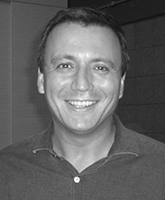
André Barata, philosopher, holder of a PhD in Contemporary Philosophy by the University of Lisbon, is an assistant professor at the University of Beira Interior (UBI), where he coordinates the PhD in Political Science. He is an integrated researcher of LabCom.IFP, whose direction he currently integrates as vice-coordinator. Is the author of several books, including "First Wills – On the political freedom for hard times" (Documenta, 2012), and, with Renato Miguel do Carmo, he co-authored the book "Social State: from all for all" (Tinta-da-China, 2014) and was co-author of the book "The future in the hands: returning to politicy of the common good" (Tinta da China, 2015). He is also the author of "Mind and Consciousness – Essays on Philosophy of Mind and Phenomenology" (Phainomenon, 2009), "Senses of Freedom" (Ta Pragmata, 2007), "Metaphors of Consciousness" (Campo das Letras, 2000). He was the first editor of "Representations of Portugality" (Caminho, 2011) and directed the journal of philosophy "Analysis" (Campo das Letras, 2005/2006). He is also vice-president of the Portuguese association of phenomenological philosophy. In addition to his academic pathways, he has, in terms of civic action, integrated the governing bodies of various political organizations. He has also some non-scientific cultural production with the titles "Descriptive Experiments" (Caminho, 2007, co-authored with Rita Taborda Duarte) and "Intimigrafia" (The Bag Man, 2014). A few dozens of book chapters and articles are added to these titles. He cooperates with the newspapers Diário Económico and O Interior.
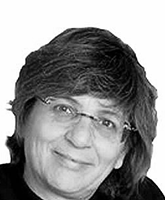
Anna Calvera Graphic Designer and PhD in Philosophy, specialised in Philosophical Aesthetics and its History, she usually teaches Design, Design History and Design Studies at undergraduate, master and PhD study programs related to Design at the Faculty of Fine Arts of the University of Barcelona. She has been visiting professor and invited to lecture in universities and design schools from Madrid, Málaga, Valencia, Pontevedra, Ciudad Real, Bilbao, La Laguna and Zaragoza in Spain; from Augsburg, Weimar, Paris, Lyon, Nîmes and Milan in Europe, Tunis and Osaka, and Managua, Havana, Guatemala, Quito, Cali, Bogotá, Manizales, Santiago de Chile, Saõ Paulo, Montevideo & Buenos Aires in Latin America. She belongs to the Research Unit GRACMON UB, devoted to History of Contemporary Art and Design. The group has recently published two collective books: La formació del Sistema Disseny Barcelona (2013) and From Industry to Art (2013). She is author of a monography on William Morris’ thought (1992) and some monographs and articles about the pioneer generation of Spanish Graphic Design. She edited two readers devoted to the aesthetic issue in design (Arte ¿? Diseño 2003, De lo bello de las cosas, 2007, e-book). She published articles in the Journal of Design History (Oxford), The Journal of Design (London), Étapes graphiques (Paris), Temas de Disseny TdD Elisava (Barcelona); tipoGráfica (Buenos Aires), Kepes (Manizales, Colombia) or Experimenta (Madrid). Recently she has been collaborating with recently open Museum of Design of Barcelona co-curating the exhibition on Spanish Graphic Design. She belongs to the editorial board of many technical journals on design. Member of the board since the beginning, she has been promoting the ICDHS Conferences after the first one held in Barcelona in 1999. She is also member of the EAD Board. She has been member of the board and chaired two years the ADP (Asociación Diseñadores Profesionales) in Barcelona; and is also member of the Design History Foundation board. She alo belongs to the Scientific Committee of the Design Museum of the Triennale di Milano (Italy).
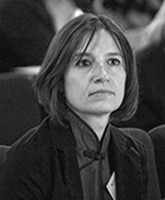
Arianna Ciula is Research Facilitator at the Department of Humanities, University of Roehampton, where she supports the departmental research and enterprise strategies and actively contributes to its research profile and networks. Arianna graduated with BA (Hons) in Communication sciences (computational linguistics) at the University of Siena in 2001. She received an MA in Applied Computing in the Humanities from King’s College London in 2004 and was awarded her PhD in Manuscript and Book Studies from the University of Siena in 2005. She worked as Research Associate at Centre for Computing in the Humanities, King’s College London (2003-2009) on various digital humanities research projects. From 2009 to 2012, she worked as Science officer at the European Science Foundation (Humanities) where her primary responsibilities included the supervision of instruments to fund collaborative research in the humanities and the coordination of strategic activities initiated by the Standing Committee for the Humanities. In 2012 she relocated to Singapore for two years, where she worked as consultant for the ESF on research evaluation missions. Her personal research interests focus on the modelling of scholarly digital resources around primary sources. She lectured and published on humanities computing, in particular on digital palaeography and digital philology; she has organised conferences and workshops in digital humanities, and is an active member of its international community.
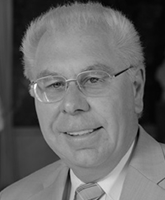
Gilbert Hottois is a professor emeritus of contemporary philosophy at the University of Brussels. Member of Belgium’s Royal Academy and of the International Institute of Philosophy, he has been a visiting professor in several American, African and European universities. From L’inflation du langage dans la philosophie contemporaine (1979) and Le Signe et la Technique (Aubier-Flammarion, 1984) to Le transhumanisme est-il un humanisme? (Ed. de l’Académie Royale de Belgique, 2014), his critical reflection on the connections between language and philosophy has evolved to the examination of ethical and political questions placed by sciences and techniques, but ignored by the philosophies of language of the 20th Century. Hottois has been a member of several ethical committees, such as the European Group for the Ethics of Sciences and New Technologies (European Union) and Belgium’s Bioethics Consultation Committee. He has edited the Nouvelle Encyclopédie de Bioéthique (Médecine-Environnement-Biotechnologie) (De Boeck-Université, 2001) as well as the Encyclopédie du trans/posthumanisme (Vrin, 2015). Among his recent work, we can also highlight: Species Technica (Vrin, 2002), Philosophies des sciences, philosophies des techniques (Collège de France-Odile Jacob, 2004), La science entre valeurs modernes et postmodernité (Vrin, 2005), Généalogies philosophique, politique et imaginaire de la technoscience (Vrin, 2013), Le transhumanisme est-il un humanisme?(Ed. de l’Académie Royale de Belgique, 2014).
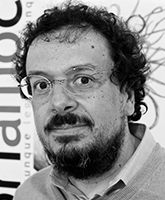
Gino Roncaglia is Associate Professor and Director of the Master course in e-learning and of the Advanced course on the future of the book at Tuscia University, Viterbo. He has authored scholarly books and articles on History of Logic and on Digital Humanities (with special emphasis on e-book and digital publishing), including the book “La quarta rivoluzione. Sei lezioni sul futuro del libro”, Laterza 2010, and is strategic consultant for the Culture and new media division of the Italian State TV Broadcaster RAI. He is member of the Committee on libraries and cultural institutes of the Italian Ministry of Cultural Heritage.
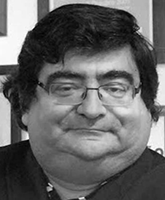
João Carlos Correia holds a Masters, PhD and Habilitation from the University of Beira Interior, where he teaches in the fields of Communication and Social Theory, Cultural Theories and Journalism Studies as an Associate Professor. Among his works the following are included:
“Mass, Publics and Multitudes: Digital Activism and some of its Paradoxes in Eduardo Torres e Samuel Mateus (eds.), “From Multitude to Crowds: Collective Action and the Media", Peter Lang, 2015; “Social media and political participation: the Portuguese ‘Indignados’ case”. In Rita Figueiras and Paula do Espírito Santo (eds.), “Beyond the Internet: Unplugging the Protest Movement Wave”, London Rutledge, 2015; “On the nature and relevance of the public-private dichotomy in the era of mobile communications”, in Carvalheiro, José, “Private and public in mobile communications”, Coimbra, Minerva, May 2015; “Journalism and Framing: Supporting Ethnographic & Discursive Approach to News.” In The Journal of Transnational 'Worlds of Power': Proliferation of Journalism and Professional Standard, (Editor: Dr. Ibrahim Saleh, University of Cape Town, South Africa) Volume 1, nº1 Publisher: Cambridge Scholars Publishing, June 2015; "Le rôle des réseaux socionumériques dans la configuration epistémologique des societés" (chapter in Serge Proulx, Jose Luís Garcia and Lona Heaton, La contribution en ligne: pratiques participatives à l'ère du capitalisme informationnel, Press Universitaires du Québec, 2014); "Online Journalism and Civic Life" (in Eugenia Siapera et ali., The Handbook of Global Online Journalism, London, Willey-Blackwell, 2012); The admirable world of news: theories and methods (Labcom Books, 2011); Communication and Citizenship: the media and the fragmentation of public sphere in pluralist societies (Lisbon, Horizonte, 2004).
Within his scientific production, it is worth to mention the authorship of six books, twenty-seven chapters of books, the editing and organization of seven anthologies of critical texts, the publishing of twenty-one communication conferences in twenty-one international proceedings books, the edition and supervision of sixteen volumes of the Journal Studies in Communication and the publishing of more than thirty articles in national and international academic journals. João Carlos Correia was a Visiting Scholar at the University Pompeu Fabra (Barcelona), at the Federal University of Minas Gerais (UFMG, Brazil) and at Sophia University. He is co-editor of the journal "Studies in Communication" and Scientific Coordinator of the Research Unit Communication, Philosophy and Humanities (LabCom.IFP). His current scientific interests and research fields are the New Media, public opinion and social movements and the ICT impact in cultural and creative industries.
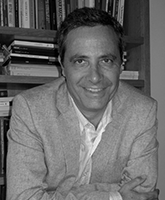
José Luís Garcia holds a PhD in Sociology from the University of Lisbon and he is Principal Investigator of the board of the Institute of Social Sciences of the University of Lisbon (ICS-UL). He has lectured in several Portuguese and foreign universities. His most recent bibliography includes La Contribution en ligne: Pratiques participatives à l’ère du capitalisme informationnel (co-editor with S. Proulx e L.Heaton), Quebec: Presses de l’Université du Québec, 2014; Jacques Ellul and the Technological Society in the 21st Century (co-editor with H. M. Jerónimo e C. Mitcham), New York, Springer, 2013; Estudos sobre os jornalistas portugueses: Metamorfoses e encruzilhadas no limiar do século XXI, Lisboa, Imprensa de Ciências Sociais, 2009, Razão, Tempo e Tecnologia: Estudos em Homenagem a Hermínio Martins (co-editor with M. V. Cabral and H.M. Jerónimo), Lisboa, Imprensa de Ciências Sociais. Co-editor with D. Fernández-Quijadas of the special number “Comparing Media Systems in the Iberian Peninsula”, The International Journal of Iberian Studies (2013). Recently he coordinated the investigation "To map the Resources, survey of legislation, characterization of the agents, international comparison", integrated in the curriculum about the culture promoted by the SEC and institutionally driven by ICS-UL. He's also the author of dozens of articles and chapters of books and a contributor to the journals Journal of Risk Research, Análise Social, Revista Española de Sociologia, Revista Iberoamericana de Ciência, Tecnologia y Sociedad, Scientiae Studia: Revista Latino-Americana de Filosofia e História da Ciência, among others. He was President of the Observatory of Cultural Activities (OAC) between 2009 and 2013.
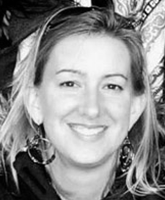
Kathryn Piquette is a Senior Researcher at the Centre for Digital Humanities, University College London where she works as an imaging specialist on papyri cartonnage and other documentary evidence. She received her BA from the University of Pennsylvania in Near Eastern Studies, and an MRes and PhD in Egyptology, both from the UCL Institute of Archaeology. As a Research Associate for Magica Levantina, University of Cologne Center for eHumanities, she worked on Greek magical texts and the Herculaneum papyri using advanced digital imaging. Prior to this, she held a Marie Curie fellowship at Free University Berlin and post-doctoral positions at the University of Oxford and Trinity College Dublin. As a trained archaeologist, Kathryn works on various projects in Egypt, including a German Archaeological Institute and Excellence Cluster TOPOI project documenting Coptic and Arabic pilgrim graffiti and wall paintings. In addition to journal articles and book chapters, edited volumes include the Open Access “Writing as Material Practice: Substance, surface and medium” (2013, Ubiquity Press). Kathryn is currently finalising “An Archaeology of Art and Writing: Early Egyptian labels in context” for Open Access publication with Modern Academic Publishing.
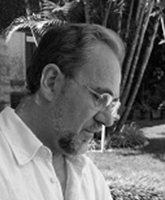
Leonel Ribeiro dos Santos (Pombal, 1947) concluded his university education in Philosophy at the University of Lisbon (degree, 1976; PhD, 1990; aggregation, 1999). PhD in Philosophy (modern and contemporary) from the University of Lisbon (1990) with the dissertation entitled Metáforas da Razão ou Economia Poética do Pensar Kantiano (presented in 1989). Scholar at the Complutense University of Madrid (1979-1980) and at the Johannes Gutenberg University of Mainz (Germany) (1982-83). Professor at the Faculty of Arts of the University of Lisbon since 1977 (Assistant, 1977-1990; Assistant Professor, 1990-1996; Associate Professor, 1996-2001; Full Professor since 2001. Vice-President of the Scientific Council of the Faculty of Arts, of the University of Lisbon (1997-1999). Elected member of the Senate of the University of Lisbon (2006-2007). Chairman of the Executive Committee of the Department of Philosophy (2005-2006). Member of the House of Representatives of the Faculty of Arts of the University of Lisbon (in several mandates). Founder (1993), scientific editor (1993-2000) and director of Philosophica magazine (2001-2011). Director of the Centre of Philosophy of the University of Lisbon (2008-2011) and research coordinator. Guest researcher at the State University of São Paulo - UNESP (Marília, São Paulo, Brazil)-2008. Scientific Auditor for the Philosophy National Exams of the Gabinete de Avaliação Educacional (Educational Assessment Office) - GAVE (2004-2008). Team member of the FCT for the Evaluation of Research Projects in Philosophy (1995-1996). Member of the first Commission of Evaluation of the Portuguese Universities (1995). President of the National Jury of Specific Philosophy Exams (1994). Memberships in scientific societies: Corresponding member of the Academy of Sciences of Lisbon; Member of the Kant Gesellschaft (Bonn); Honorary Member of the Brazilian Kant Society; Member of the International Academy for Philosophy; Member of the Scientific Society of the Portuguese Catholic University; Member of the Luso-Brazilian Institute of Philosophy, Member of the Philosophical Hispanism Association. Scientific consulting functions: Member of the Editorial Board of the Imprensa Nacional - Casa da Moeda (2006-); Member of the Scientific Board of the Revista Portuguesa de Filosofia (Portuguese Journal of Philosophy) (2000-2010); Reviewer of Kant-e-Prints journals (Campinas, SP, Brazil) Trans/Form/Ação (Sao Paulo); Member of the Editorial Board of the magazine Philosophica; Reviewer of nominations to the LATIN UNION/FCT Prize of Scientific Translation (Philosophy). (For further information see Curriculum Lattes - CNPq (Brazil))
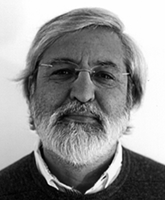
Moisés de Lemos Martins is a Full Professor of the Department of Communication Sciences at the University of Minho. He directs the Center for Communication and Society Studies (CECS), which he founded in 2001. He is the Director of the journal Comunicação e Sociedade, and also of Revista Lusófona de Estudos Culturais. He was the first Director of the PhD in Communication Sciences, at the University of Minho (2009-2011). He was the Director of the doctoral program in Cultural Studies, a consortium PhD between the University of Minho and the University of Aveiro, from 2010 to 2015. He was the first Director of FCT PhD " Communication Studies: Technology, Culture and Society ", a consortium doctorate, which involves cinco Universities. He chaired the Sopcom – Portuguese Association of Communication Sciences, from 2005 to 2015; the Lusocom – Federation of the Portuguese-speaking Associations of Communication Sciences, from 2011 to 2015; the Confibercom - Ibero-American Confederation of Scientific and Academic Associations of Communication, from 2012 to 2015. He got his PhD from the University of Strasbourg in Social Sciences (in the field of Sociology), he has published, in the areas of Culture Sociology, Social Semiotics, Communication Sociology, Intercultural Communication, Lusophone Studies. He published or edited, among many other books: Lusofonia e Interculturalidade – Promessa e Travessia (2015), Do Post ao Postal (with Maria da Luz Correia, 2014), Crise no Castelo da Cultura (2011); L’Imaginaire des Médias (with Michel Maffesoli, 2011), Portugal Ilustrado em Postais – Viana do Castelo, Braga, Bragança, Viseu e Portalegre (with Madalena Oliveira, 2011); Caminhos nas Ciências Sociais (2010); Comunicação e Lusofonia (with Helena Sousa e Rosa Cabecinhas, 2006); A Linguagem, a Verdade e o Poder (2002); Para uma Inversa Navegação (1996); O Olho de Deus no Discurso Salazarista (1990).
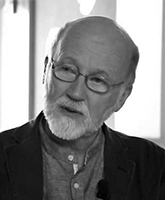
Peter Dahlgren is Professor Emeritus at the Dept. of Communication and Media, Lund University, Sweden. His work deals with media and democracy, using the horizons of late modern social and cultural theory. Most recently he has focused on the internet and political participation, looking at how the Web, combined with other factors, can promote or hinder civic identities and engagement, especially among young people. He is active in European academic networks and has also been a visiting scholar at several universities. Along with journal articles and book chapters, his recent publications include The Political Web (Palgrave, 2013), Media and Political Engagement (Cambridge University Press, 2009), and the co-edited volume Young People, ICTs and Democracy (Nordicom, 2010).
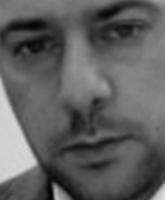
Francisco Tiago Antunes Paiva (Covilhã 1973) is an Assistant Professor at the University of Beira Interior, where he directs the 1st cycle of studies in Multimedia Design. Holder of a PhD in Fine Arts, in the specialty of Drawing, from the University of the Basque Country, graduated in Architecture from the University of Coimbra and graduated in Design from the Faculty of Fine Arts of the University of Lisbon. He was a visiting researcher at the University of Bordeaux. Currently he is an integrated researcher of LabCom.IFP on the field of film and multimedia and he is the Coordinator of the Group of Arts / Line of Culture and New Humanities of this Research Unit, developing his research primarily on the time and space processes in art. He integrates several scientific committees of journals and other events related with these issues. Author of numerous articles and communications on art, design and architecture and of the books What does the design represent? Concept, objects and purposes of modern design (2005) and Auditoriums: type and morphology (2011). He is the scientific coordinator of DESIGNA, International Conference on Design Research, since 2011.
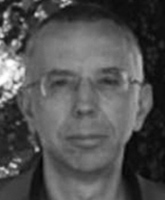
José Manuel Santos Studies of Philosophy at the Universities of Paris I-Sorbonne, Colone and Wuppertal. Master and PhD in Philosophy by the University of Paris I-Panthéon-Sorbonne. He has teached Philosophy at the University of Wuppertal (Germany) (1987-1993). Actually he is Professor at the University of Beira interior where he coordinates the PhD Programme in Philosophy and teaches Contemporary Thinking, Ethics and Political Thinking. He has coordinated the research unit Institut of Practical Philosophy (2002-2014), a FCT supported research unit. Actually he is the coordinator of the Practical Philosophy Group in the research unit Labcom.IFP. His main areas of interest and research are contemporary philosophy, specially phenomenology (Heidegger, Merleau-Ponty, Blumenberg), ethics (Aristotle and contemporary ethics) and political thought. He published several book chapters and articles in journals about subjects on this areas. Recently published books as author: O mundo e o tempo. Ensaios de fenomenologia e teoria da comunicação, UBI, Ta Pragmata, Covilhã, 2007; Introdução à ética, Documenta, Lisboa, 2012. Recently co-edited books: Filosofias da comunicação, Livros Labcom, Covilhã, 2011; Teorias Políticas Contemporâneas, Documenta, Lisboa, 2015.
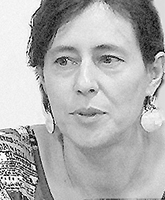
Manuela Penafria Professor at the Department of Communication and Arts of the University of Beira Interior, teaching in the Cinema degrees (BA and MA) and is a researcher at the Labcom.IFP. The main publications are: The paradigm of documentary, about the portuguese filmmaker António Campos (2009); the organization of the book: Contributions to the theory and aesthetics of documentary cinema (2011) and a chapter about the beginnings of portugues cinema in the book: Portuguese cinema, an essential guide, organized by Paulo Cunha and Michele Salles (2013). As one of the coordinators of the work group "Filmmaker's theory" of the AIM-Association of the Moving Image Researchers, is developing a research line for a cinema theory based on the filmmaker's reflections. Since 2006 is the co-editor of the journal DOC On-line (www.doc.ubi.pt), about documentary cinema.
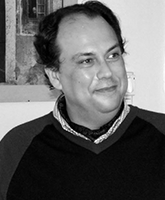
Paulo Osório has a Graduation in Classic Studies, and a Master’s, PhD and Habilitation in Portuguese Linguistics. He is Associate Professor with habilitation at the University of Beira Interior and researcher in the unit Labcom.IFP. He is head of Letter`s Department. He has published books and papers in journals.
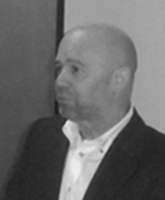
J. Paulo Serra has a Graduation in Philosophy, and a Master’s Degree and a PhD in Communication Sciences. He is Professor at the Department of Communication and Arts of University of Beira Interior (Portugal), and researcher in the unit Labcom.IFP, where he coordinates the Communication and Media Group. He is also the Dean of the Faculty of Arts and Letters. He authored the books Information as Utopia (1998), Information and Sense (2003) and Communication Theory Handbook (2008), co-authored the book Information and Persuasion on the Web (2009), edited the book Rhetoric and Politics (2015), and co-edited the books Online Journalism (2003), Online Lifeworld and Citizenship (2003), From the communication of Faith to the faith in Communication (2005), Communication Sciences in Congress at Covilhã (Proceedings, 2005), Rhetoric and Mediation: From Writing to the Internet (2008), Pragmatics: Advertising and Marketing (2011), Philosophies of Communication (2011), Political Participation and Web 2.0 (2014), and The Ubiquitous Television (2015). He has also published several book chapters and articles in journals and collective works.
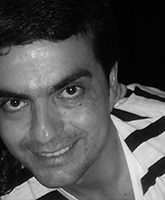
Urbano Sidoncha has a degree in Philosophy from the Faculty of Letters of Lisbon University and a PhD in Contemporary Philosophy from the same University. Assistant Professor at the Faculty of Arts and Letters of UBI, he was the first Course Director of Sciences of Culture of UBI, a position which he held between 2013 and 2015, and course Director of Philosophy from 2009 until the present time. Integrated researcher of LabCom.IFP, he is the author of several scientific papers published in national and foreign journals and author of the book From the Empirical to the Transcendental -Consciousness and the Mind/Body Problem between the Reductionist Materialism and the Husserl Phenomenology, FCG/FCT, 2011.
Universidade da Beira Interior
Faculdade de Artes e Letras
Rua Marquês D'Ávila e Bolama
6201-001 Covilhã
Phone: +351 275 319 700
Ext.: 3342
Email: joao.correia@labcom.ubi.pt
GPS Coordinates
40°16'39.0"N 7°30'29.7"W